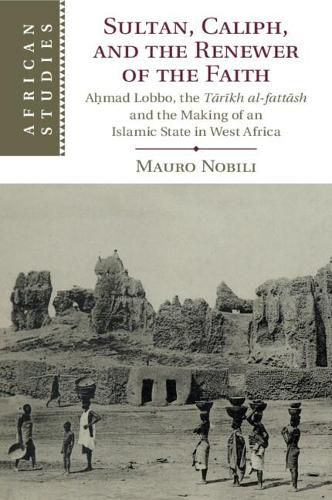Readings Newsletter
Become a Readings Member to make your shopping experience even easier.
Sign in or sign up for free!
You’re not far away from qualifying for FREE standard shipping within Australia
You’ve qualified for FREE standard shipping within Australia
The cart is loading…






The Tarikh al-fattash is one of the most important and celebrated sources for the history of pre-colonial West Africa, yet it has confounded scholars for decades with its inconsistences and questions surrounding its authorship. In this study, Mauro Nobili examines and challenges existing theories on the chronicle, arguing that much of what we have presumed about the work is deeply flawed. Making extensive use of previously unpublished Arabic sources, Nobili demonstrates that the Tarikh al-fattash was in fact written in the nineteenth century by a Fulani scholar, Nuh b. al-Tahir, who modified pre-existing historiographical material as a political project in legitimation of the West African Islamic state known as the Caliphate of Hamdallahi and its founding leader Ahmad Lobbo. Contextualizing its production within the broader development of the religious and political landscape of West Africa, this study represents a significant moment in the study of West African history and of the evolution of Arabic historical literature in Timbuktu and its surrounding regions.
$9.00 standard shipping within Australia
FREE standard shipping within Australia for orders over $100.00
Express & International shipping calculated at checkout
The Tarikh al-fattash is one of the most important and celebrated sources for the history of pre-colonial West Africa, yet it has confounded scholars for decades with its inconsistences and questions surrounding its authorship. In this study, Mauro Nobili examines and challenges existing theories on the chronicle, arguing that much of what we have presumed about the work is deeply flawed. Making extensive use of previously unpublished Arabic sources, Nobili demonstrates that the Tarikh al-fattash was in fact written in the nineteenth century by a Fulani scholar, Nuh b. al-Tahir, who modified pre-existing historiographical material as a political project in legitimation of the West African Islamic state known as the Caliphate of Hamdallahi and its founding leader Ahmad Lobbo. Contextualizing its production within the broader development of the religious and political landscape of West Africa, this study represents a significant moment in the study of West African history and of the evolution of Arabic historical literature in Timbuktu and its surrounding regions.